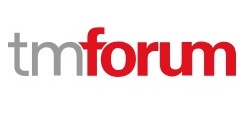The transformation of Operational Support Systems (OSS) and Business Support Systems (BSS) is essential if Communications Service Providers (CSPs) are to maximise their revenue opportunities from 5G. This is the key takeaway from a new report by TM Forum, the industry association driving digital transformation through collaboration.
The report, entitled ‘5G Monetisation: operational imperatives’, reveals the challenges of 5G monetisation beyond the two most advanced 5G use cases: Enhanced Mobile Broadband (eMBB) and Fixed Wireless Access (FWA). According to the report, 67% of total revenue from 5G use cases beyond eMBB and FWA is dependent on OSS/BSS transformation.
More specifically, the report found that 63% of connectivity related revenue for non-traditional use cases is dependent on OSS/BSS transformation, while 72% of enabling and service creation revenue is dependent on OSS/BSS transformation.
The report identifies the key operational changes that are necessary for CSPs to move beyond their traditional business models and address new vertical market sectors with differentiated services. It relates these changes to the 5G plans and progress of CSPs from four continents, highlighting the gaps and identifying the necessary steps to bridge them.
“The most noticeable result from the survey is how much is still unknown – from the use of network slices, to which channels CSPs will use to take services to market,” said Catherine Haslam, report author and senior analyst at TM Forum.
“We understand that standards are still in development and a huge amount has been achieved to develop the 5G New Radio (NR), but CSPs must start to plan their IT transformation sooner rather than later. Without it, there will be little scope to turn technology into services, and services into revenue.”
In addition to the findings, the report also defines a new type of IT infrastructure that will be key to monetising 5G, based on the design principles of TM Forum’s Open Digital Architecture (ODA). This infrastructure illustrates how formerly autonomous systems will be impacted by and reliant on each other in a 5G world.
“Operational silos must be consigned to history and services managed end-to-end from network provisioning, through to product creation, billing and service delivery, and back again. Automation and specifically AI-powered closed automation will be essential to monetising the service differentiation that sets 5G apart from its predecessors,” said Haslam.
To compile its 2018 report, TM Forum surveyed 144 respondents from 71 CSP and 74 supplier companies.
Comment on this article below or via Twitter: @VanillaPlus OR @jcvplus






